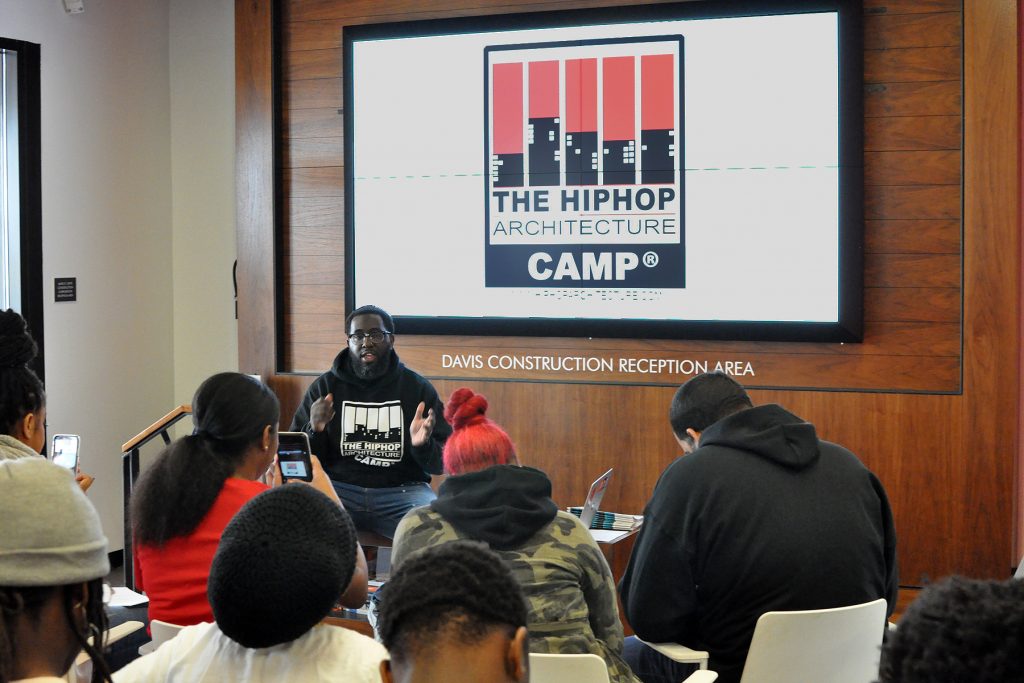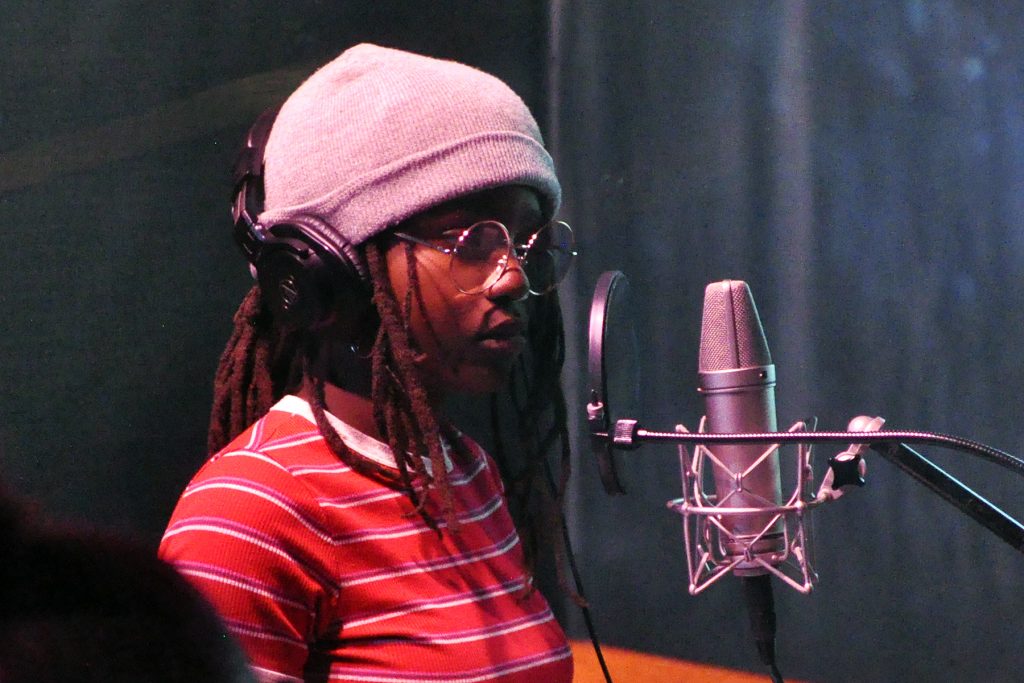Hip Hop Architecture Camp Lands in DC
For Architectural Digest, I had the wonderful opportunity to attend a day of the Hip Hop Architecture Camp’s visit to Washington, DC. This edition of the camp brought 10 middle school students to AIA|DC’s District Architecture Center, where, with guidance from the camp’s founder, Michael Ford, they explored architectural concepts through physical and digital modeling. The students also developed verses reflecting their experiences in the built environment, with a rap battle yielding four finalists who then recorded a DC-specific track. An excerpt of that article is below.

How Hip-Hop Can Help Solve Design’s Diversity Problem
The Hip Hop Architecture Camp is introducing underrepresented kids to the design profession, one lyric at a time.
by Deane Madsen
On a mild afternoon in Washington, D.C., a makeshift stage has formed in the entryway of the District Architecture Center. Middle-schooler Iyana Benjamin adjusts the arms of her gold-rimmed, circular glasses from beneath a gray beanie and smiles as she looks up from her notebook and out to a few rows of folding chairs, accommodating nine other kids and a few adults. A beat emanating from a nearby laptop breaks the silence, and Benjamin begins to rap. She raps in a matter-of-fact yet firm tone on topics that are well beyond her years, from the swift gentrification of her neighborhood to the overshadowed African American architects who first built it.
I grew up in a place being gentrified / Raised in Chocolate City, rehabilitized / Hanging out in the streets of Eastland Gardens / Where houses were built by Lewis K and Clyde Martin
—Iyana Benjamin
Benjamin, along with the other middle school students, are part of a weeklong workshop called the Hip Hop Architecture Camp. The program, founded and administered by architectural designer Michael Ford, brings awareness of the built environment to kids who may never have considered their place of upbringing as being a formative part of it. That’s something Ford hopes to change.
For students at the camp, the workshops are opportunities to not just explore a potential career avenue but develop a whole new way of thinking about their cities. Over the course of a week, students watch a lot of hip-hop music videos, but they also reinterpret their lyrics as miniature buildings and explore design at multiple scales. With the aid of volunteers, they then write their own songs (the lyrics of which are featured throughout this piece), jotting down bars in notebooks with a goal of recording them later.
“The benefit of doing this, for architects and urban planners, is being able to communicate with other artists about their skills and bring them into architecture,” Ford says. “As architects, we’ve always been influenced by culture. The Hip Hop Architecture Camp creates some very interesting, cross-disciplinary conversations that I have not had in architecture school.”
Read the full article at Architectural Digest.
Listen to the DC track, “Find A Way,” via the Hip Hop Architecture Camp.
